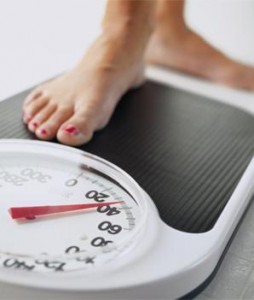Recently an industry sponsored study was reviewed by the media with this headline: “Diet soda helps weight loss, industry-funded study finds”. Before you get too excited about this study, let me tell you that you are being deceived. Essentially the study compared 150 overweight or obese people on water and a similar group of people on diet sodas. Both groups were counselled on the benefits of exercise and a healthier diet. At the end of 12 weeks the water group that did not drink diet sodas had lost 9 pounds, while the diet soda group that continued their former habit lost 13 pounds. The question now is why this 4 pound difference? The sponsor of the study would like you to think that the soda diet drink is healthier, because it helps you to lose weight. Let me explain to you that there are a few flaws in the study as follows.
1. Most often there are confounding errors in industry-sponsored studies. Even though it looks on the surface that the two groups were comparable, researchers should have checked out various parameters like sex distribution, other underlying illnesses, mental state (depressed or not etc.), diabetes and other factors to make sure that there is no metabolic bias between the two groups from the start of the study.
2. Deception built into study: we know from other studies that on the long-term diet sodas lead to weight gain by stimulating your appetite for sweets and their subsequent consumption. Often short-term studies show the opposite effect, so it would be false to assume that long-term results would be similar. But most readers who read this quickly would be tempted to think “so it must be OK to continue to consume diet soda drinks!” Off you go to the grocery store and buy another 6 or 12 pack. That’s exactly what the industry-sponsored study set out to do. Somewhere in the back-room of a big soft drink corporation the executives discussed among themselves that their statistics were bad; the sales of diet soft drinks were down; there was too much negative press fuelled by the health food industry. They had to do something about this, so they designed a study where the good guy was the diet soft drink. If the consumer is not buying the results, at least the study helped to confuse people and whenever there is confusion, at least part of the confused population will return to their old habits. After all the study showed “ it is OK”.
3. Excitotoxins are not OK. Unfortunately all artificial sweeteners are toxic to your brain, they are excitotoxins. MSG is another excitotoxin. The only exception is the natural sweetener stevia, a plant product, which is OK. Splenda is an insecticide, so this is belongs to the xenoestrogens, bad for you as it acts like a foreign estrogen and has cancer-promoting qualities when exposed to it for several decades. The rest of the artificial sweeteners are excitotoxins: they burn your brain cells very slowly and can lead to dementia. Unfortunately they are addicting and your brain will make you feel good when you drink more of it. So, the real reason why the study group on diet sodas did better than the water group is because they did not have to change that habit, there was no withdrawal to deal with and they felt fine. So they could concentrate on dieting and exercising and of course you would lose 13 pounds in 12 weeks doing that. The water group on the other hand had to cope with diet soda withdrawal and on top was challenged by an exercise and weight loss program. As there was no diet restriction, they could compensate a bit for their trouble of withdrawal and eat a few muffins or some extra bread to make up for the lack of their comfort diet drink fix (the satisfaction of consuming the excitotoxin). This slick short-term study design is what should have alarmed the publisher to ask a few hard questions.
4. There needs to be an internal logic in the study: Let’s do a thought experiment where we repeat the study and start with two comparable overweight/obese groups of people and put them on no sugar and no refined carbs for 2 weeks and also on no diet sodas for the same time. After two weeks they are both accustomed to this diet and the no diet soda habit and they have probably lost the same amount of weight from the calorie restriction. Now we start the one group on diet sodas and the other group on water, but strictly controlled for a similar calorie intake in terms of other foods or drinks as much as is humanly possible. I would predict that after 12 weeks the water group will have at least lost the same weight as the diet soda group, if not more. The diet soda group likely will have had some problems with sugar craving and may have had more dietary indiscretions (sneaking in snacks and underreporting them), but this would show up as weight gain.
You may be proud of having completed this well controlled study. The trouble is that your industry sponsor that produces the diet drinks will not like this outcome and would not allow the results to be published. In fact that kind of result would be actively suppressed.
Conclusion:
The diet soda study discussed here is a lesson in biased publishing. We are constantly bombarded by an endless string of meaningless publications that are designed to make the consumer insecure, or bias us for accepting a company’s product in the hope of achieving a certain result (like high sales). Even, if this is not accomplished the company has sold enough of their product just for giving it a try. Beware of the door-to-door sales person. This figure is very much present right in this publication. In this case it is the sales pitch of the diet soda manufacturers! You are looking at a study that was designed to make you buy more of the excitotoxin (aspartame or other artificial sweeteners), which likely contributed to your extra weight or obesity in the first place. It’s up to you to shut the door on this sales pitch. Instead of a diet soda I suggest you make your own drink: squeeze half an organic lemon and top this with mineral water of your choice. Sweeten it with a tiny amount of stevia. This has no calories and does not stimulate you to eat more sugar and starchy foods; but it quenches any thirst and you even get some water-soluble vitamins in the process.
Last edited May 31, 2014








